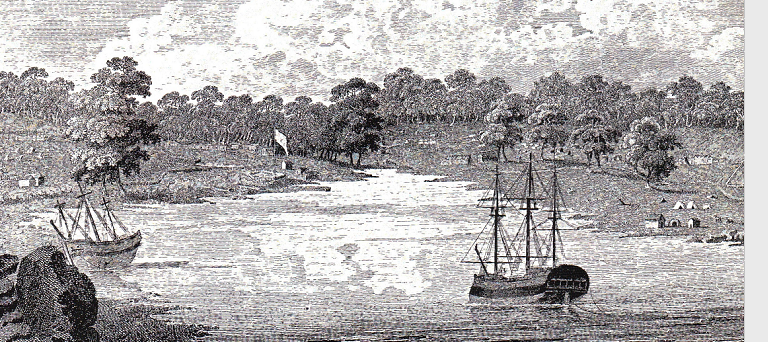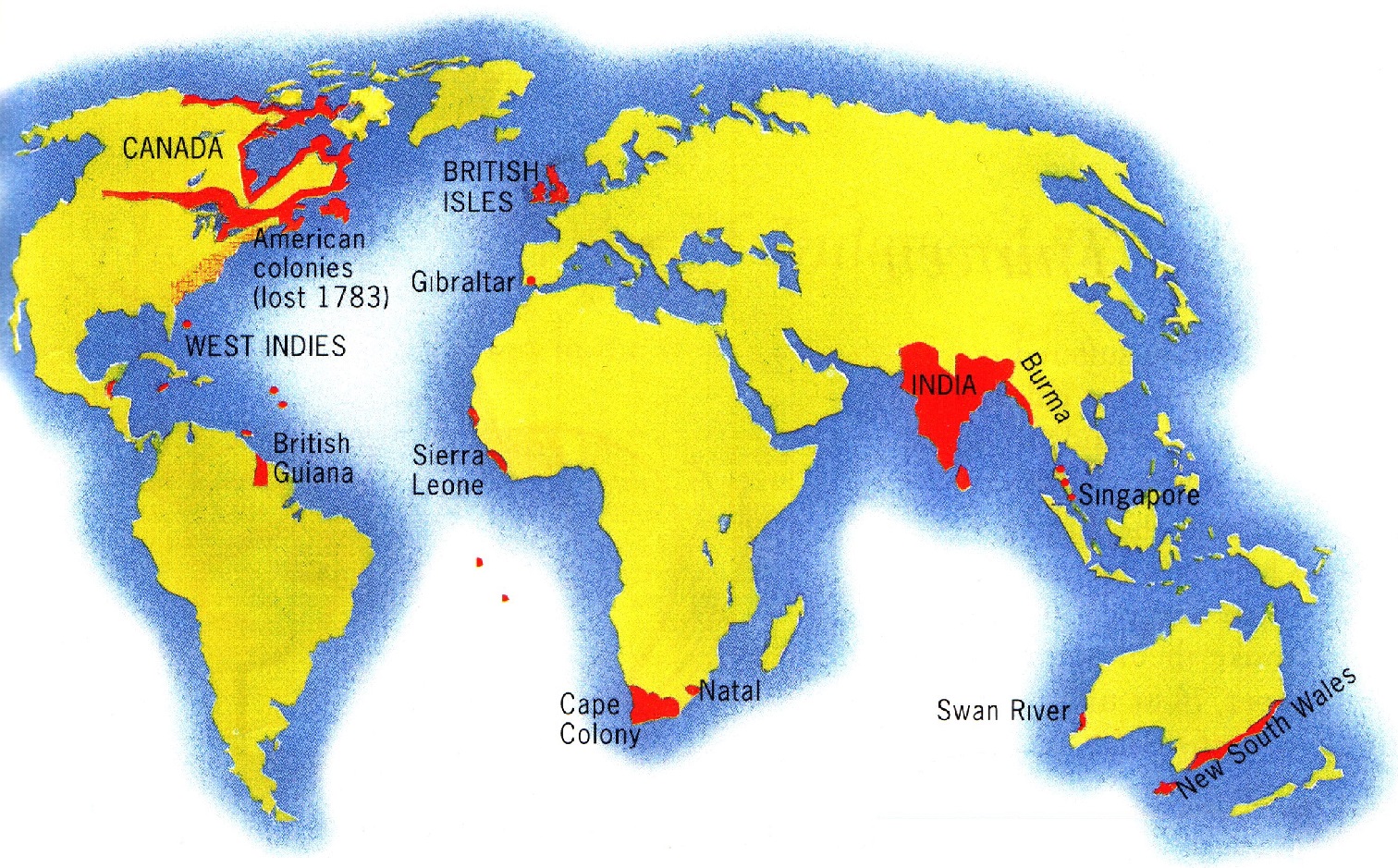
The British Empire

Introduction
The British Empire
The foundations of the British Empire were laid in the seventeenth century, when the British set up 13 colonies in North America, and some trading posts in India. They easily defeated untrained native forces armed with little more than shields and spears. Although often outnumbered, the British troops had modern weapons, and were well-trained and disciplined.
The British government soon realised the importance of its overseas empire. In 1651 it passed the Navigation Acts, which said that all trade to and from Britain had to be carried in Bntish ships. Bntish colonies were not allowed to make manufactured goods;. instead, they had to buy them from Britain. This meant that Bntish merchants could make vast fortunes selling machinery, clothes and hardware to the colonists; then they could make just as much money bnnging back furs, sugar, tobaco and tea from the colonies!
Britain's main rival was France. France was much bigger and wealthier than Britain. Its army was more powerful than the small British army.
But Britain had a number of advantages over France. British traders could go on trading voyages whenever they wanted. When they became wealthy, they were often elected to be Members of Parliament. This meant that they had a say in the government's decisions. In France, all trading ventures were controlled by the king. Even the richest merchants were despised by the nobles.
It was even more important that Britain was an island. France was often involved in wars in Europe. The British learned to ignore events in Europe, and to concentrate on building up their empire overseas.
 Captain Cook explored Australia and New Zealand in 1768-79. After 1788, Britain transported many convicts to Australia, which was used as a huge prison.
Captain Cook explored Australia and New Zealand in 1768-79. After 1788, Britain transported many convicts to Australia, which was used as a huge prison.
The Seven Years' War (1756-63)
The Seven Years' War was a conflict between Britain and France, but British troops did little fighting in Europe. Instead, the Bntish sent money to their ally, Frederick of Prussia, to help him fight the French. The Bntish fought mainly to increase their empire.
Britain's greatest triumphs came in 1759, the 'Wonderful Year'. The Bntish navy was more powerful than the French navy. In 1759, it destroyed the French fleet. For the rest of the war, therefore, British troops around the world could be supplied and reinforced by the Bntish navy, whereas the French troops had no such support.
As a result, Britain's empire grew during the war. In India, Robert Clive won the Battle of Plassey.
The British were also able to destroy French power in America. In 1759, a Brinsh army under General James Wolfe attacked the French headquarters at Quebec in Canada. At first it seemed as though he was going to fail. Then one night Wolfe led his men up the steep cliffs which protected Quebec. In the battle that followed, both Wolfe and the French commander were killed. But French influence in North America was ended.
At the Treaty of Paris, which ended the war in 1763, the French gave up Canada and most of their power in India. The British also captured a number of islands in the West Indies – at this time, the tobacco and sugar they produced made them the most profitable places on earth. Britain also took land in Africa and the Far East.
The money which came from trade and the Empire made Britain the wealthiest nation on earth, and was a cause of the Industrial Revolution.
After you have studied this webpage, answer the question sheet by clicking on the 'Time to Work' icon at the top of the page.
Links:
The following websites will help you research further:
The British Empire:
•
A 3-minute video showing the gorwth and decline of the British Empire, year by year 1707-2017
1 Map of the British Empire in 1830
